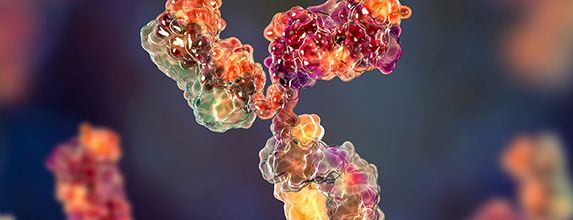CD40 ELISA Kits
ELISA kits are commonly used to measure soluble biomarkers across a variety of research areas. ELISA kits for CD40 are available for Human and Mouse which can be quantified in various samples, including plasma, serum, supernatant, amniotic fluid.
Invitrogen ELISA kits exist in two... ELISA kits are commonly used to measure soluble biomarkers across a variety of research areas. ELISA kits for CD40 are available for Human and Mouse which can be quantified in various samples, including plasma, serum, supernatant, amniotic fluid.
Invitrogen ELISA kits exist in two formats: Uncoated and Coated.... ELISA kits are commonly used to measure soluble biomarkers across a variety of research areas. ELISA kits for CD40 are available for Human and Mouse which can be quantified in various samples, including plasma, serum, supernatant, amniotic fluid.
Invitrogen ELISA kits exist in two formats: Uncoated and Coated. Uncoated ELISA kits include all the necessary reagents to coat your own plates and run your assay with maximum flexibility. Coated ELISA kits...
Invitrogen ELISA kits exist in two... ELISA kits are commonly used to measure soluble biomarkers across a variety of research areas. ELISA kits for CD40 are available for Human and Mouse which can be quantified in various samples, including plasma, serum, supernatant, amniotic fluid.
Invitrogen ELISA kits exist in two formats: Uncoated and Coated.... ELISA kits are commonly used to measure soluble biomarkers across a variety of research areas. ELISA kits for CD40 are available for Human and Mouse which can be quantified in various samples, including plasma, serum, supernatant, amniotic fluid.
Invitrogen ELISA kits exist in two formats: Uncoated and Coated. Uncoated ELISA kits include all the necessary reagents to coat your own plates and run your assay with maximum flexibility. Coated ELISA kits...
Sensitivity 1.3 pg/mL
Assay Range 7.8-500 pg/mL
Sample Volume
Amniotic Fluid
50 µL
Plasma
50 µL
Serum
50 µL
Time To Result
3 hr 10 min
(1 hr 20 min hands-on)
Price
Cat # BMS265
Sensitivity 3 pg/mL
Assay Range 2.06-1,500 pg/mL
Sample Volume
Plasma
33 µL
Serum
33 µL
Supernatant
100 µL
Time To Result
4 hr 45 min
(1 hr 20 min hands-on)
Price
Cat # EMCD40
Not finding what youre looking for? Create Your Own ELISA



Performance Guarantee
If an Invitrogen™ immunoassay doesn't perform as described on our website or datasheet,we'll replace the product at no cost to you, or provide you with a credit for a future purchase.*
Learn more
We're here to help
Get expert recommendations for common problems or connect directly with an on staff expert for technical assistance related to applications, equipment and general product use.
Contact tech support